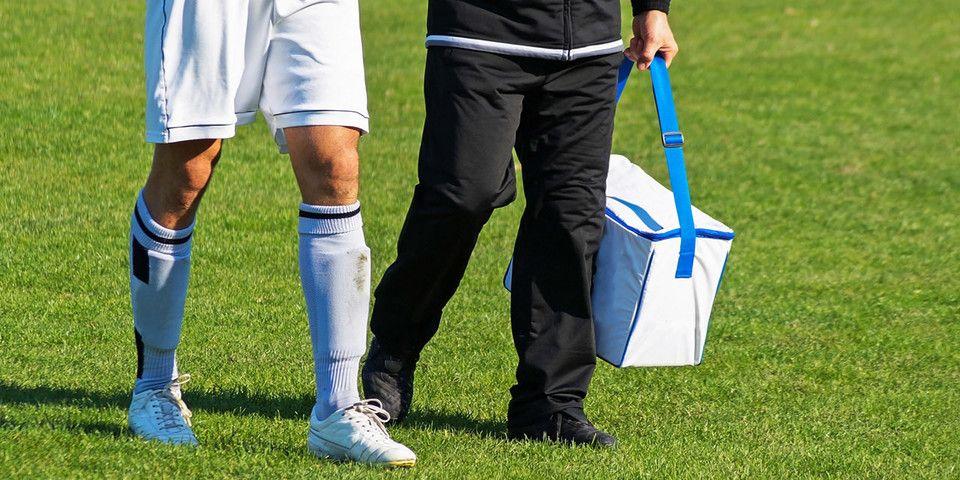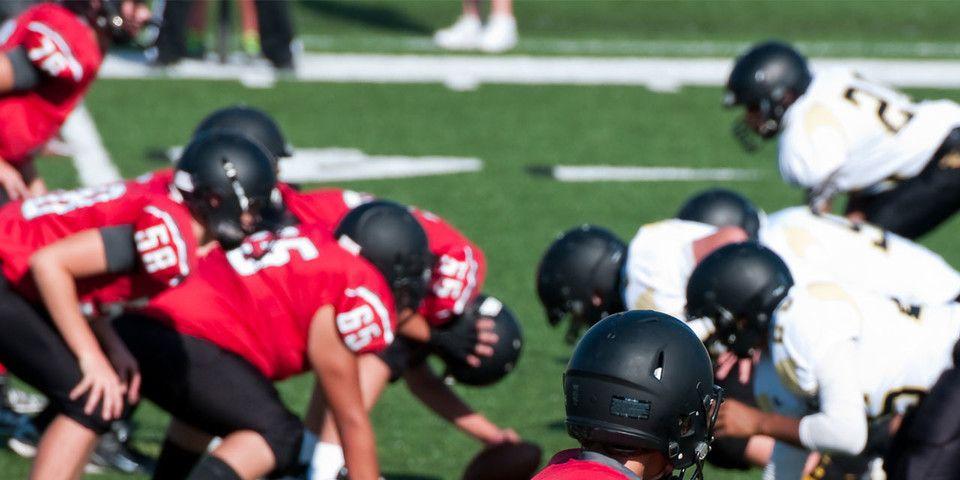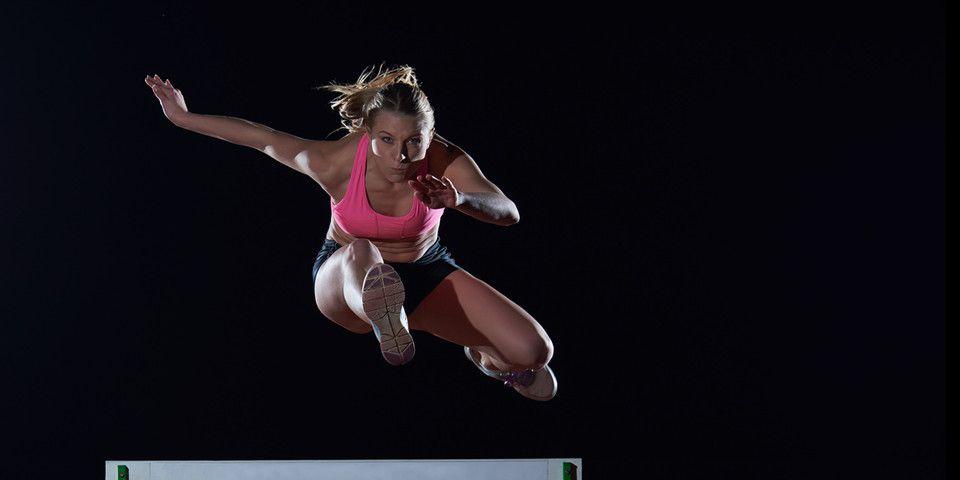Achilles Tendinitis: the Weekend Warrior’s Weakness
Reduce your risk of Achilles tendonitis with some simple best practices.
Weekend warriors might best be defined as workers in predominantly sedentary jobs who take to the fields for strenuous sports and activities on their days off. These bursts of activity may be cathartic and feel like healthy pursuits, but such inconsistency puts the participants at risk for a number of injuries, especially Achilles tendonitis. To keep our weekend warriors healthy and on their game, Rothman Orthopaedic Institute presents the following overview of Achilles tendonitis and how to help prevent it.
Achilles Tendonitis Defined
The Achilles tendon is a strong, fibrous cord that connects the muscles in the back of your calf to your heel bone. This tendon is active when you walk, run, jump or push up on your toes. Achilles tendonitis is a condition characterized by inflammation and irritation of the Achilles tendon. Even more specifically, insertional Achilles tendonitis is a degeneration of the fibers of the Achilles tendon directly at its insertion into the heel bone.
Achilles tendonitis is caused by repeated and/or intense strain on the Achilles tendon. The Achilles tendon weakens with age, making it more susceptible to injury — particularly in weekend warriors or runners who have suddenly increased the intensity of their programs.
Symptoms primarily consist of pain and swelling in the heel, especially during physical activity, such as soccer, football, or running. You might also experience tenderness or stiffness, especially in the morning, which usually improves with mild activity, as well as the feeling of tightness or a limited range of motion when flexing the foot.
Risk Factors
Tendonitis can affect people of any age but is more common among adults who do a lot of sports, or those who do not warm up properly for their activity. Elderly individuals are also susceptible to tendonitis as tendons lose their elasticity during aging. Rheumatoid arthritis patients are also more susceptible, as well as anyone with poor foot mechanics and those who wear old collapsed shoes for too long.
Preventive Measures
While it may not be possible to prevent Achilles tendonitis completely, there are preventive steps weekend warriors - and all those at risk - can take to minimize their risk, such as:
-
Gradual beginnings: Beginners in any exercise or sport should start slowly, then increase the duration and intensity of activity.
-
Strategic stretches: Take the time to stretch your calf muscles and Achilles tendon daily, as well as before and after exercise/training. This helps to maintain flexibility and prevent tearing of the fibers during exertion.
-
Quality footwear: Firm arch support and proper heel cushioning are essential to help reduce the tension in the Achilles tendon. Even shoes in good condition may benefit from arch supports insoles.
-
Cross-training: Alternate high-impact activities, such as soccer and football, with low-impact ones, such as cycling and swimming. Weekend warriors, in particular, can benefit from walking for 20-30 minutes three times a week to prime the body for whatever their days off have in store.
In The Event Of Onset...
If Achilles tendonitis develops despite your best efforts, there are a number of nonoperative treatments that are known to help, including:
-
Rest allows the swelling to subside and allow healing.
-
Immobilization and/or compression aids such as braces, a removable walking boot or a cast can quickly allow the inflamed tendon to cool.
-
Ice can help to stimulate blood flow and relieve pain.
-
Over the Counter Medications such as non-steroidal, anti-inflammatory medications (NSAIDs) can reduce the pain and swelling of Achilles tendonitis.
-
Physical Therapy can help you improve flexibility and prevent future injury to the Achilles tendon.
Left untreated, Achilles tendonitis can lead to a series of tears within the tendon, making it susceptible to rupture. If you have any questions about your risk factors or if you are experiencing any pain, your first step should be to consult your physician right away. For more specialized treatment, visit us here or contact us at 1-800-321-9999.
Related Physicians
Related Specialties
Related Conditions
Related Treatments
Related Programs
-

Athletic Training- Sport Medicine Outreach
Our Field Athletic Trainers provide direct sports medicine care to youth, high school, college and professional athletes. Rothman AT’s provide athletic training services throughout Southeastern PA to interscholastic high schools, colleges, as well as tournaments and special events.Read More -

Injury Prevention Program
The Injury Prevention Program at the Rothman Orthopaedic Institute is dedicated to the prevention of injuries from athletic participation, particularly youth sports.Read More -

Women’s Sports Medicine Program
The Women’s Sports Medicine Program at the Rothman Orthopaedic Institute is the first of its kind in the Philadelphia metro area and one of only several such programs specializing in the comprehensive care of the female athlete in the country.Read More




